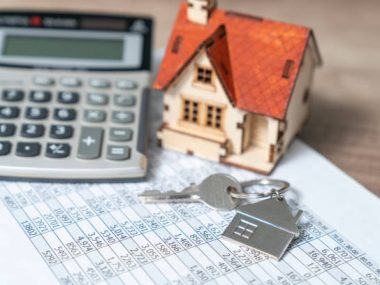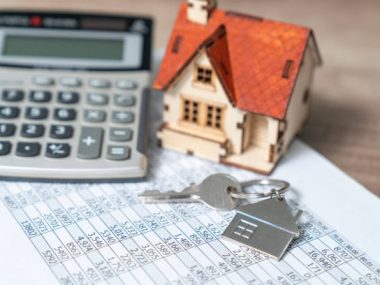Can I get a mortgage with unfiled taxes? Obtaining a mortgage is a significant milestone in the journey toward homeownership.
However, when faced with the question, “Can I get a mortgage with unfiled taxes?” potential homebuyers may find themselves uncertain about their eligibility.
Taxes play a crucial role in financial matters, including mortgage applications, as they provide lenders with insights into an applicant’s income, liabilities, and financial stability.
Failure to file taxes can raise concerns among lenders, potentially affecting the approval process.
In this article, we will delve into the implications of unfiled taxes on mortgage applications, explore the challenges involved, and provide guidance on how to navigate this situation successfully.
Whether you’re a first-time homebuyer or looking to refinance, understanding the impact of unfiled taxes on your mortgage journey is crucial for a smooth and successful homeownership experience.
Also Read:
Is Mortgage Forbearance a Good Idea?
Can You Add Renovation Costs to Conventional Mortgage?
Can I Get a Mortgage with Unfiled Taxes?
Obtaining a mortgage with unfiled taxes can pose challenges during the application process.
Taxes are a crucial aspect of mortgage approval as they provide lenders with insights into an applicant’s financial situation.
Unfiled taxes can raise concerns for lenders, as it indicates a lack of financial responsibility or potential undisclosed liabilities.
When considering a mortgage application, lenders typically require tax returns from the past two to three years.
These documents help lenders assess an applicant’s income, verify their employment status, and evaluate their debt-to-income ratio.
Without filed tax returns, lenders may be hesitant to proceed with the application or may require additional documentation to compensate for the missing information.
Unfiled taxes can lead to a variety of consequences that impact mortgage eligibility.
For instance, the Internal Revenue Service (IRS) can place tax liens on the property, which takes priority over the mortgage, making it difficult for lenders to recover their investment in case of default.
Additionally, unfiled taxes can result in penalties, interest charges, and even legal repercussions, all of which can negatively affect an applicant’s credit score.
If you find yourself in a situation with unfiled taxes and want to secure a mortgage, it is crucial to address the issue promptly.
Start by filing your tax returns and ensuring you are up to date with your tax obligations.
Seeking professional advice from a tax attorney or certified public accountant (CPA) can provide guidance on resolving any outstanding tax issues and establishing a plan to address them.
Transparency and open communication with lenders are key during the mortgage application process.
Inform your lender about the unfiled taxes and provide them with a clear understanding of your current financial situation.
Demonstrating your commitment to resolving any outstanding tax matters and presenting a strong overall financial profile can improve your chances of mortgage approval.
Overall, while obtaining a mortgage with unfiled taxes can present challenges, it is not impossible.
By addressing the issue promptly, filing your tax returns, seeking professional assistance if needed, and maintaining open communication with lenders, you can improve your chances of securing a mortgage and achieving your homeownership goals.
Remember, each lender has their own criteria, so it’s essential to research and approach lenders who may be more flexible in considering your application.
Steps to Address Unfiled Taxes Before Applying for a Mortgage
Addressing unfiled taxes before applying for a mortgage is essential to improve your chances of approval. Here are the steps to take:
1. File Your Outstanding Tax Returns
Start by gathering all relevant financial documents and complete your unfiled tax returns.
Ensure accuracy and include any necessary amendments or corrections. It’s crucial to be thorough and transparent in your tax filings.
2. Assess Your Tax Liability
Calculate any taxes owed based on your unfiled returns.
This step helps you understand the potential impact on your financial situation and allows you to develop a plan for repayment or negotiation with tax authorities if necessary.
3. Settle Outstanding Taxes
Paying off your tax liability is crucial. If you’re unable to pay in full, explore options such as setting up a payment plan with the tax authorities or negotiating a settlement.
Taking proactive steps to resolve your tax issues demonstrates financial responsibility to potential lenders.
4. Obtain Proof of Tax Compliance
Once your taxes are filed and any outstanding balances are settled, request proof of tax compliance from the tax authorities.
This documentation serves as evidence of your updated tax status and can be provided to lenders during the mortgage application process.
5. Consult a Tax Professional
If you feel overwhelmed or unsure about the process, consider seeking guidance from a tax professional such as a tax attorney or CPA.
They can offer advice, help navigate complex tax situations, and ensure compliance with tax laws.
By addressing unfiled taxes before applying for a mortgage, you demonstrate financial responsibility and improve your chances of mortgage approval.
Keep all relevant documents organized and maintain open communication with lenders to provide necessary information promptly.
Tips for Successfully Obtaining a Mortgage with Unfiled Taxes
Successfully obtaining a mortgage with unfiled taxes requires careful planning and proactive steps.
Here are some tips to increase your chances of mortgage approval:
1. File Your Tax Returns Promptly
Prioritize filing your outstanding tax returns as soon as possible. Lenders require filed tax returns to assess your financial stability and income.
Having up-to-date tax returns shows your commitment to resolving any tax-related issues.
2. Pay Any Outstanding Taxes
If you owe taxes, make arrangements to pay them off or set up a payment plan with the tax authorities.
Lenders prefer applicants who have resolved their tax liabilities and demonstrate responsible financial behavior.
3. Maintain a Strong Credit Score
Focus on improving your credit score by paying bills on time, reducing debt, and keeping credit utilization low.
A good credit score can offset concerns about unfiled taxes and strengthen your mortgage application.
4. Save for a Larger Down Payment
Increasing your down payment can compensate for potential lender concerns regarding unfiled taxes.
A larger down payment reduces the loan-to-value ratio, making you a lower-risk borrower.
5. Be Transparent with Your Lender
Openly discuss your situation with the lender and provide all necessary documentation, such as proof of tax filings, payment plans, and compliance with tax authorities.
Transparency and honesty build trust and demonstrate your commitment to resolving any tax-related issues.
By following these tips, you can enhance your chances of obtaining a mortgage successfully, even with unfiled taxes.
Taking proactive steps, resolving outstanding tax issues, and maintaining a strong financial profile demonstrate your commitment to responsible homeownership and increase your appeal to lenders.
Also Read:
Does a Reverse Mortgage Go Through Probate?
How to Increase Mortgage Preapproval Amount
Conclusion
Obtaining a mortgage with unfiled taxes can be challenging, but it is not impossible.
Addressing the issue promptly by filing outstanding tax returns, settling any tax liabilities, and demonstrating financial responsibility is crucial.
Open communication with lenders, transparency about your situation, and providing necessary documentation can improve your chances of mortgage approval.
Seeking professional advice from tax professionals can provide guidance and expertise throughout the process.
Remember, each lender has their own criteria, so research and approach lenders who may be more flexible in considering your application.
By taking proactive steps and resolving unfiled tax matters, you can work towards securing a mortgage and achieving your homeownership goals.






